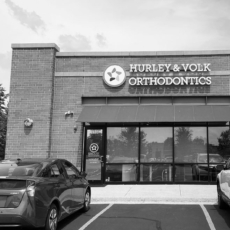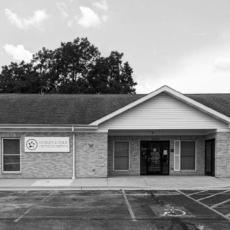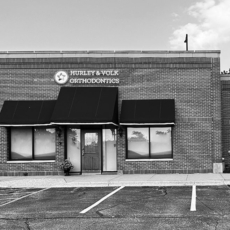Orthodontic Braces for All Ages
As leaders in customized braces treatment, our low-force, low-friction approach uses the Damon braces system. With orthodontists in the Chicago area, we offer both metal braces and clear braces to deliver a smile you’re proud to share! Schedule your FREE braces consultation today!
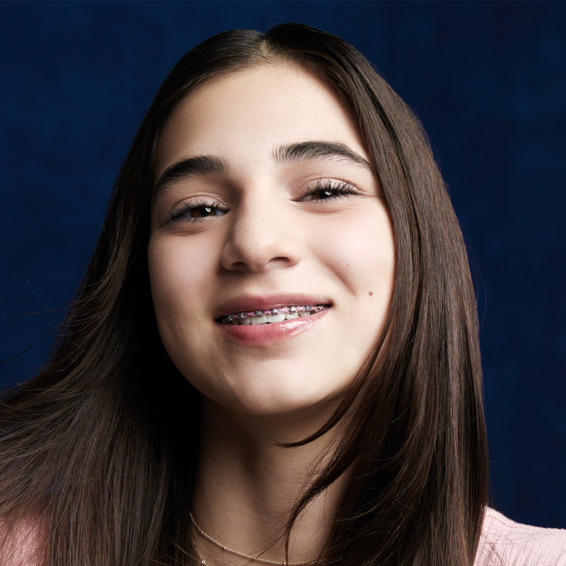
Types of Braces

Damon Metal Braces
Damon braces are a popular alternative to traditional metal braces. These braces use “self-ligating” technology, which means there’s no need for elastic ties. Damon braces gently shift teeth into the desired position and are often more comfortable—and sometimes work faster—than traditional metal or ceramic braces.
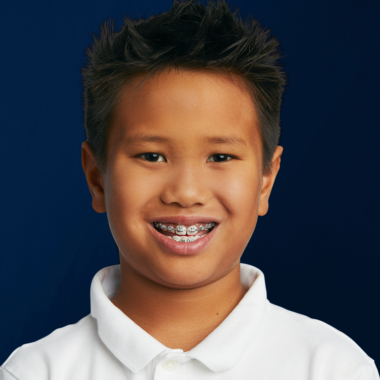
Damon Clear Braces
Combining the light, gentle straightening forces of self-ligating technology with clear or tooth-colored ceramic brackets, Damon Clear braces offer all the benefits of the Damon system in a more discreet way. And because the brackets are smaller, clear, and easy to clean, people may not even be able to tell you’re wearing braces!
Let us help you when you book a free consult.
Braces FAQs
It is very important to avoid foods that could result in broken brackets, loose wires, or broken appliances. Examples of foods that you should avoid:
- Chewy foods such as bagels, fruit leathers, or beef jerky
- Sticky foods like caramel candy, licorice, and marshmallows
- Crunchy foods like chips, raw carrots, raw celery, and popcorn
- Hard foods such as hard candy, hard breadsticks, or pizza crust
- Foods that require biting into such as corn on the cob and apples. You can still enjoy these foods by slicing the apples or removing the corn from the cob.
A common question asked, “How long after getting braces can I eat normal foods? We tell patients that it’s best to avoid foods that can damage braces throughout the treatment period. If you can’t say no to the craving, eat with extreme caution.
Before brushing, do a quick rinse with water. This will dislodge any food particles stuck between the wires or brackets. Brush beginning at the gum line, using a 45-degree angle of approach. As you move towards the brackets, brush from both the top and the bottom, ensuring that the bristles reach under the wires and around the brackets. This process may take some extra time in the beginning, but once you are used to it, it will be routine for you. Follow up with a thorough flossing.
Generally, braces are not painful. However, you may feel a little sore or uncomfortable immediately after you first get them. This soreness is normal, and it will not last long.
A saltwater rinse can help relieve the soreness and inflammation. Dissolve a single teaspoon of salt in a full cup of lukewarm water and swish around your mouth for a few minutes. If soreness persists, you can take an over-the-counter pain reliever such as ibuprofen or acetaminophen. If you experience lip, cheek, or tongue irritation in the weeks after getting braces, some wax can alleviate the problem quickly.
With severe bite problems and/or patients with missing teeth, orthodontists used to struggle with needing external anchor points to precisely control the adjustment of out of place teeth. The solution used to be unfortunate looking and inconvenient practices like headgear and external braces.
That is, until Temporary Anchorage Devices or TADs came along. Using an anchor attached to the jawbone, TADs eliminate the need for headgear and other uncomfortable treatments by providing an extra anchor point inside the mouth. They’re a safe and effective way to provide more exact orthodontic treatment for patients who need it—and not everyone does. Your Hurley & Volk Orthodontics doctor will know whether TADs are right for you and can advise you about them during your consultation.
The amount of time that you will need to wear braces varies, depending on several things such as the severity of your bite problem. Most patients need to wear braces for 12 to 24 months, but this can be shorter or longer depending on your case. Your doctor will discuss this with you and give you a general idea of what you can expect. After several months of wearing braces, the progress can be measured more easily, and a more accurate update can be given to you regarding how much longer you can expect to wear braces.
Absolutely! One popular option for less noticeable braces is ceramic braces. Very similar to the traditional metal braces in that brackets and wires guide your teeth into the correct position, they’re more discreet. Instead of stainless steel, ceramic brackets are white or clear ceramic that blend in with your teeth.
The cost of braces depends on which type of braces you choose, how long you will need treatment, and any other factors that might be unique to your treatment plan. Our treatment coordinators offer affordable payment plans that can work with your budget and get you the orthodontic care that you need.

